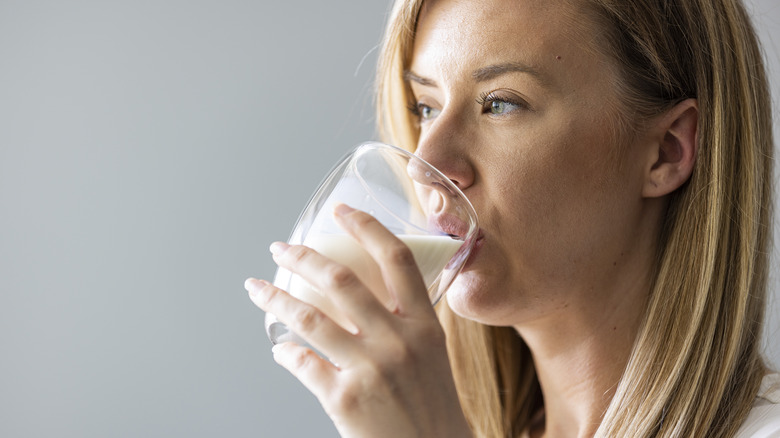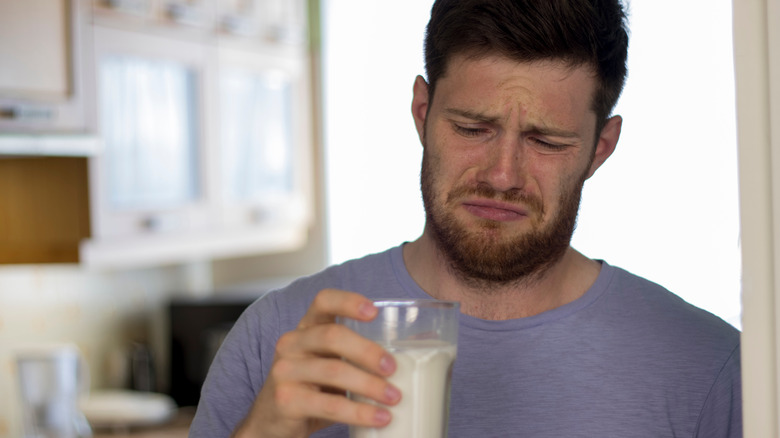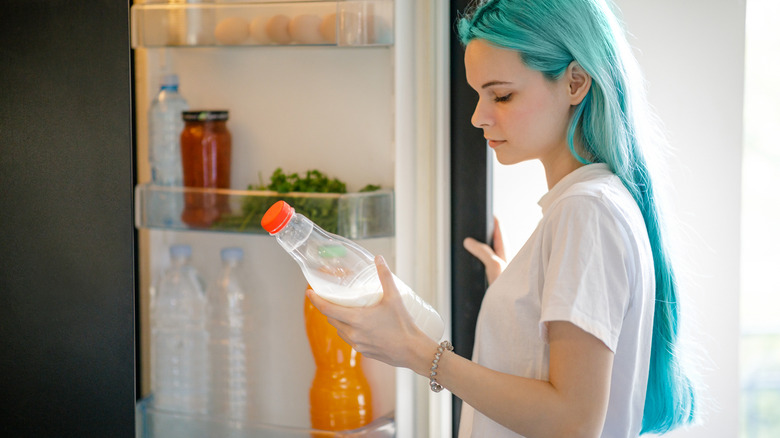
Milk is a staple in most households. Whether you add it to your coffee or pour it over your morning cereal, milk is a versatile ingredient rich in calcium, phosphorus, B vitamins, potassium, and vitamin D. Despite your best efforts to monitor expiry dates, you may occasionally end up with multiple cartons in the fridge, leading to the possibility of accidentally consuming spoiled milk with your cereal.
So, what happens if you take a sip of spoiled milk? According to experts, typically not much. The sour smell and taste usually deter further consumption. Spoiled milk is easily identifiable by its unpleasant odor, sour taste, yellowish tint, and chunky texture (via Healthline). However, a sip is quite different from consuming a significant amount.
Here’s what happens if you take more than a sip of spoiled milk

Dr. Niket Sonpal, a New York-based internist and gastroenterologist, explained to Well+Good that consuming a significant amount of spoiled milk can impact your gastrointestinal tract, leading to stomach cramps, vomiting, and diarrhea. These symptoms are similar to those caused by other food-borne illnesses, according to the Missouri Poison Center. Typically, the symptoms will resolve themselves within 12 to 24 hours.
If you suspect food poisoning, it’s important to replenish lost fluids from vomiting and diarrhea. Hydrate with beverages containing sugar and electrolytes, as advised by the Missouri Poison Center. Avoid taking any medications without consulting a doctor. If symptoms persist beyond 24 hours, or if you experience severe dehydration, persistent vomiting, fever, or diarrhea lasting more than three days, seek medical attention as recommended by the Centers for Disease Control and Prevention. To prevent such occurrences, proper milk storage and understanding how milk spoils are crucial.
How to store your milk properly

Storing milk on the refrigerator door is not advisable, as it is one of the warmest spots, exposed to temperature changes each time the door opens. Milk, like meat, cheese, fruits, and vegetables, should not be stored there. “Milk should be stored on a shelf toward the back of the fridge where it is coldest,” advised Charleston, South Carolina-based chef Molly Gordon (via Southern Living).
All milk, whether pasteurized or plant-based, will spoil due to bacterial overgrowth. Registered dietitian Jenna Volpe explained to Livestrong that microbes ferment particles in the milk, compromising its quality and taste. Exposure to warm temperatures and light can speed up spoilage, according to Healthline. Before drinking milk, give it a quick sniff test to ensure its freshness, preventing the transition from a sip of spoiled milk to a gulp.




